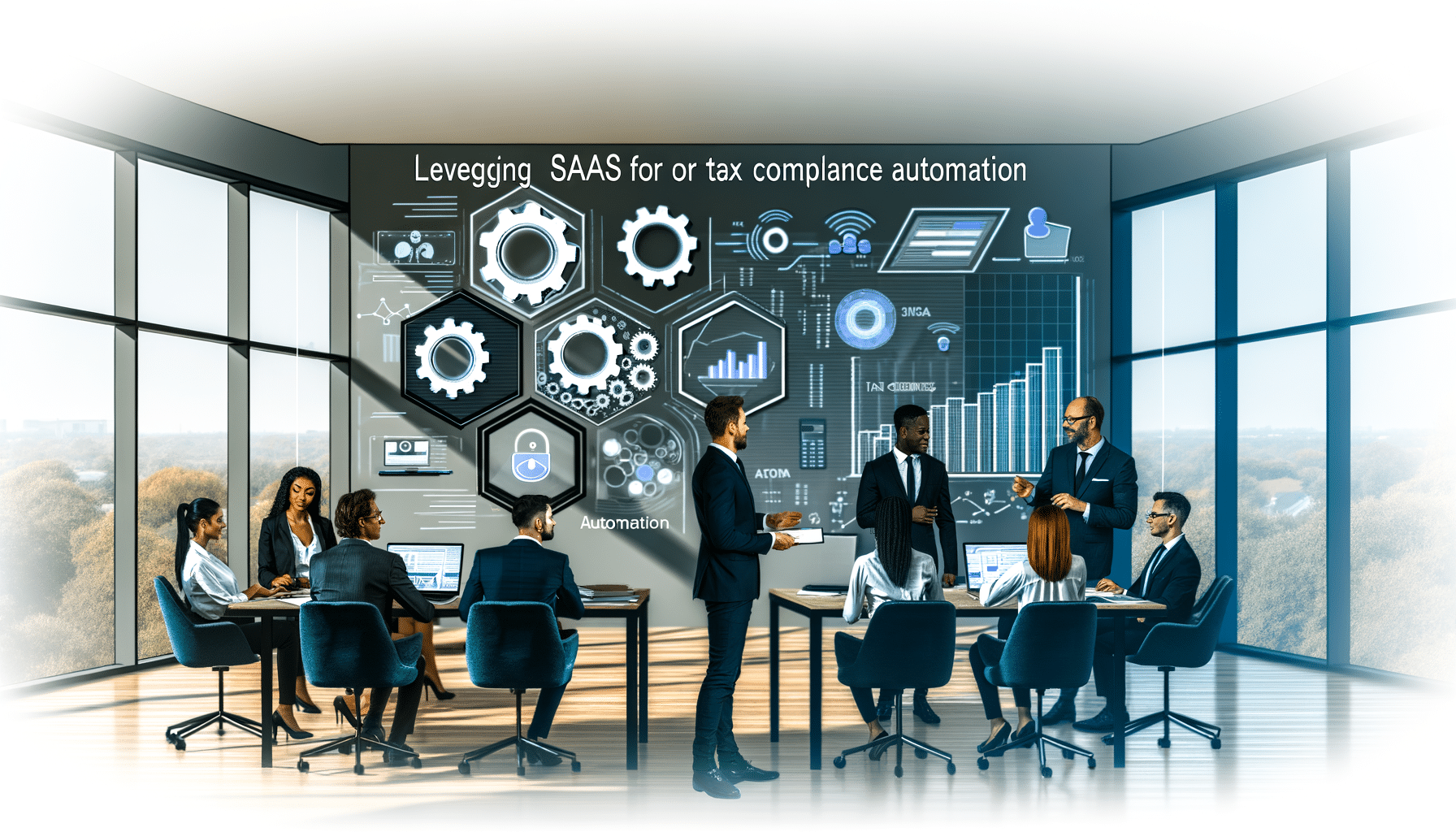- AI in Finance
- November 16, 2024
Leveraging SaaS for Tax Compliance Automation

In today’s fast-paced digital landscape, businesses are continuously seeking ways to streamline operations and focus efforts on growth-driven activities. One area that often becomes a bottleneck is tax compliance—a daunting task that requires meticulous attention to detail. As a founder of a company dedicated to easing record management complexities, I understand the challenges businesses face. That’s why I’m thrilled to explore how Software as a Service (SaaS) solutions, like RecordsKeeper.AI, are transforming the way organizations approach tax compliance.
Why Embrace SaaS for Tax Compliance?
When it comes to tax compliance, accuracy and timeliness are non-negotiable. The repercussions for non-compliance range from hefty penalties to damaged reputations. Here’s where SaaS enters the picture. SaaS platforms revolutionize tax compliance, making it a seamless component of business management. By embracing such technology, businesses can move away from manual processes and reduce the risk of non-compliance.
Simplified Compliance Through Automation
SaaS solutions leverage automation to handle various tax-related processes effortlessly. These technologies automatically update with the latest regulatory changes, ensuring that all compliance actions align with current laws. As a result, finance and compliance teams can eliminate manual tracking and monitoring, focusing instead on strategic financial planning.
Consider how automated categorization supported by AI streamlines document management. By automatically classifying and tagging records, SaaS platforms like RecordsKeeper.AI make information retrieval a breeze. Whether it’s invoices or transaction records, everything is stored securely and accessed with a few clicks, facilitating straightforward tax audits.
Data Integrity and Security
The use of SaaS platforms brings a multitude of security benefits. With built-in features like secure data rooms and blockchain integration, your sensitive financial data is preserved, tamper-proof, and compliant. Imagine a blockchain-based system that verifies each record’s integrity—this was once a vision, but now it’s reality with RecordsKeeper.AI. This level of security ensures that even as data travels, it remains uncompromised.
Moreover, automated compliance workflows mitigate human error, reducing the likelihood of costly mistakes. Data integrity and compliance ensure that tax declarations are accurate, which in turn prevents any errors when filing tax returns. It’s a level of precision that only technology can promise.
Cost Savings and Efficiency
The benefits of adopting SaaS solutions are also financial. Automating tax compliance is an investment that yields a high return by saving time, reducing labor costs, and mitigating risks. With records easily accessible, time spent on administrative tasks is cut significantly; personnel can instead direct their skills toward more strategic activities.
Additionally, streamlined processes mean quicker tax filings and rebates, without the need for expensive third-party firms. SaaS platforms often offer scalable pricing models, allowing businesses to choose plans that fit their budget and compliance needs, offering maximum financial efficiency.
Seamless Integration with Existing Systems
In the past, integrating new systems with existing ones was a cumbersome task. However, today’s SaaS platforms are designed for seamless integration, easily synchronizing with various business tools. Your current accounting software can work in tandem with a SaaS tax compliance solution, allowing for smoother data transfers and uninterrupted compliance adherence.
This level of connectivity offers a single source of truth for all financial records, from bookkeeping to auditing, ensuring no data or compliance details are lost in translation.
Future Opportunities and Innovations
The field of tax compliance is ever-evolving, and staying ahead of changes can be daunting. SaaS solutions not only provide support today but are also future-proofed to adapt to new regulations. What excites me most is the ongoing innovation in this space, where machine learning and AI continue to enhance capabilities, driving smarter decision-making.
A tool like RecordsKeeper.AI embodies this forward momentum. From dashboard insights to predictive analytics, users can anticipate compliance needs, making proactive rather than reactive decisions. This innovation is not just beneficial; it’s transformative.
Conclusion
Adopting a SaaS approach to tax compliance automation is more than a technological upgrade; it’s a strategic shift that boosts efficiency, compliance accuracy, and security. As businesses navigate the complexities of financial oversight, platforms like RecordsKeeper.AI provide a robust solution, enabling decision-makers to focus on growth and innovation.
I invite finance and compliance professionals to explore SaaS solutions to revolutionize their tax compliance strategies. By leveraging these technologies, businesses don’t just manage compliance—they thrive with it.
For more insights into how technology is shaping finance and compliance, join me on this exciting journey, and let’s transform how we approach record management together.
Toshendra Sharma is the visionary founder and CEO of RecordsKeeper.AI, spearheading the fusion of AI and blockchain to redefine enterprise record management. With a groundbreaking approach to solving complex business challenges, Toshendra combines deep expertise in blockchain and artificial intelligence with an acute understanding of enterprise compliance and security needs.
Related Posts

Handling Rush Financial Report Requests
Managing urgent requests for financial documentation.
- December 20, 2024

Seasonal Record Management for Tax Firms
Organizing records during peak tax season efficiently.
- November 24, 2024
Archives
- January 2025
- December 2024
- November 2024
- October 2024
- September 2024
- August 2024
- July 2024
- June 2024
- May 2024
- April 2024
- March 2024
- February 2024
- January 2024
- December 2023
- November 2023
- October 2023
- September 2023
- August 2023
- July 2023
- June 2023
- May 2023
- April 2023
- March 2023
- February 2023
- January 2023
- December 2022
- November 2022
- October 2022
- September 2022
Want to get more content like this?
Signup to directly get this type of content to your inbox!!
Latest Post
Document Control for Equipment Maintenance
- January 20, 2025
Managing Records for Multiple Clients
- January 19, 2025
Handling Conference Documentation
- January 18, 2025
Setting Up Department Record Reviews
- January 17, 2025





